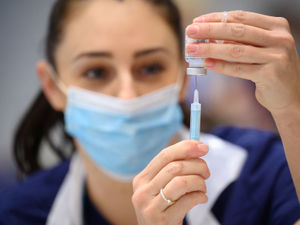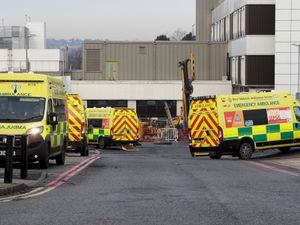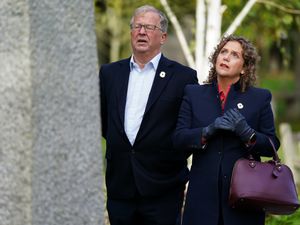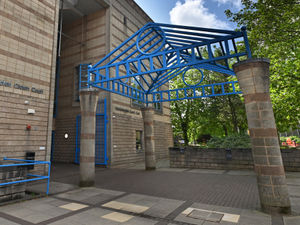Heart scan team receives commendation for reducing waiting list
A hospital trust's radiology cardiac CT team has been commended for reducing the number of people waiting for scans delayed due to the pandemic.
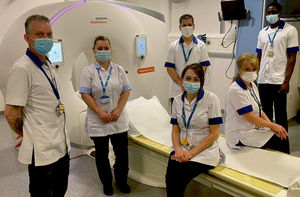
University Hospitals of North Midlands NHS Trust's radiology cardiac CT team has worked from September to November 2020, including over weekends, to catch up.
The trust runs Royal Stoke University Hospital and County Hospital in Stafford.
Dr Samavia Raza, Consultant Cardiothoracic Radiologist at UHNM, said: “Chest imaging has been the frontline of radiology during the pandemic and our CT radiographers deserve particular commendation for the work they have done, not only for Covid-19 inpatients during the first and second waves, but for simultaneously helping us ramp up to address significant backlogs after the first wave.
“The team was able to start scanning again in September 2020 and to deal with the backlog, our team of four cardiothoracic radiologists started undertaking weekend lists. The team has also continued with inpatient cardiac CT throughout the pandemic and commenced routine weekday outpatient lists in September.”
Heartcare company HeartFlow, Inc. work in partnership with clinicians at UHNM to provide the potentially life-saving diagnostic tool HeartFlow Analysis. They have commended the hospital’s team for their dedication and commitment.
Lance Scott, chief commercial officer at HeartFlow, said: “The team at UHNM has gone to great efforts to ensure patients receive continued access to the best of cardiac care throughout the pandemic. We at HeartFlow are proud to be working with them to enhance heart care for their patients.
“The HeartFlow Analysis can help to minimise time spent in hospitals and this has been invaluable throughout the pandemic, when patients have been apprehensive about going to the hospital due to infection risk. With the HeartFlow Analysis, patients have often been able to get a diagnosis in a single visit.”
The HeartFlow Analysis uses data from a patient’s CT scan, artificial intelligence and highly trained analysts to create a 3D, digital interactive model of a person’s coronary arteries.
Dr Raza said: “With the HeartFlow Analysis, we can often avoid patients undergoing an additional hospital visit and unnecessary invasive procedures to determine a treatment plan. Given the current concerns with social distancing, minimising unnecessary hospitals visits is now more important than ever before.
"As we restore our diagnostic services to pre-Covid-19 levels and recover from long waiting lists, the HeartFlow Analysis has been shown to be a very useful tool in reducing the number of diagnostic tests a patient needs, which in turn improves patient flow through the diagnostic pathways.”


